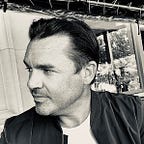Saint Cloud
Waxahatchee’s reflective, sober soundtrack for quarantine times
The one constant for Waxahatchee has always been Katie Crutchfield’s voice. That is to say, her literal one — a sweet, wise-beyond-its-years tenor that is half clarion call and half frayed edge — and metaphorical one: the messages she bears of wry disillusionment, brash exuberance, and the surety that hard-earned epiphanies lie hidden in between.
Over whispery lo-fi folk or grunge-inflected rock, Waxahatchee romanticizes despair in an opaque way that indie music fans find comforting. “We will find a way to be lonely any chance we get/ And I’ll keep having dreams about loveless marriage and regret” she sang on “Swan Dive” from 2013 breakthrough Cerulean Salt. On another song “Brother Bryan” (about a co-dependent friend who eventually dies from a drug overdose), she likened young adulthood to being “only 30% dead.” Crutchfield’s artistry lay in transforming authentic unease into something cleverly detached yet catchy.
But Saint Cloud, her fifth and most personal album, strips away the veneer. “I got sober in Barcelona (on tour in 2018)” she revealed in an interview . “I had gone back and forth a lot about my substance issues, and I woke up one day and said, ‘I’m done with this forever.’” The songs, written after Crutchfield quit drinking, remain inspired, but there are less emotional abstractions and more candor by way of raw reckoning. Her expansive, guitar-heavy sound gives way to sepia-hued Americana and alt-folk, and the soft twang of her Alabama roots graces her vocal cadences, imparting a heartfelt intimacy. The voice that has defined Waxahatchee quietly takes center stage, annointed profound.
For a memoir so confidential, Saint Cloud’s warmth feels surprisingly communal — its melodies are built for campfires and road trips. “Can’t Do Much,” “Fire,” and “Ruby Falls” are master classes in pop craftsmanship, almost to the point where elegance could be mistaken for simplicity. Producer Brad Cook’s restrained studio flourishes compliment Crutchfield’s arrangements without detracting from their uncomplicated beauty. From the moment you put St. Cloud on, it feels as welcoming and worn-in as a cozy sweater.
The album belies self-care and clemency, but make no mistake, these eleven songs are swords — the labored product of a hundred of Crutchfield’s wounds, melted, poured, and hammered into gorgeous, rune-carved arcs with a wordsmith’s care. They ward against the enemy that encroaches upon her from within, keeping it at bay. They cut the air, effortless and whistling.
“I’m in a war with myself/ It’s got nothing to do with you” she admits but later warns: “I’ll put you through hell.” On “Arkadelphia,” Crutchfield lucidly recounts visiting the friend who lost his life to addiction: “I lose my grip, I drive out far/ Past fireworks at the old trailer park/ And folding chars, American flags/ Selling tomatoes at five bucks a bag.” She gently draws out those last words… Five. Bucks. A. Bag… letting the taste of the memory linger like ripe, bittersweet fruit.
As poetic as her lyrics are, words never defy the contours of the music. Meter bends to the melody like a plant to the sun. “And the lilacs drank the water/ Marking the slow, slow, slow passage of time.” she sings, elongating the “slows” into a long, loving exhale. Even when Crutchfield repeats herself, there are no wasted words.
Saint Cloud’s storytelling and redemptive vigor have earned it comparisons to Lucinda Williams’ alt-country classic Car Wheels on a Gravel Road, a suggestion Crutchfield is humbled by: “Williams tells the stories of my life, the lives of characters I swear I’ve met before.” Like her idol, Crutchfield paints with astonishing economy and detail: “Real love don’t follow a straight line/ It’s breaks your neck/ It builds you a delicate shrine.” “West Memphis is on fire/ In the light of day.” “My eyes roll around like dice on the felt.” The imagery is vivid, fantastical, and indelible.
Crutchfield traverses places and moments, haunting cities like Arkadelphia, New York City and Saint Cloud while questioning her sobriety and art’s ability to stand the test of time. “If I burn out like a lightbulb/ They’ll say ‘She wasn’t mean for that life’” she laments. But by the final track, her immolation has turned to a source of strength and discernment. “And if you burn slow, burning slow/ On your own roof/ Yell what you know.” she declares “When I go, Look back at me, embers aglow.” The journey is complete, her staying power assured.
Saint Cloud begins with Crutchfield’s declaration “I want it all” and ends with her having it. As incisive as Waxahatchee’s songs have been to date, she has always keep a piece of herself at arm’s length. Even when narrating in first person, it felt as though she was telling tales about someone else. The story is now Katie Crutchield’s, no more, no less. Saint Cloud is both valor and vulverability. It is her roof, and she is yelling from it, quietly. Her voice cuts the air, effortless and whistling.
